The midwife’s wisdom instead of power politics
What the MCC partners in Gaza have to tell us
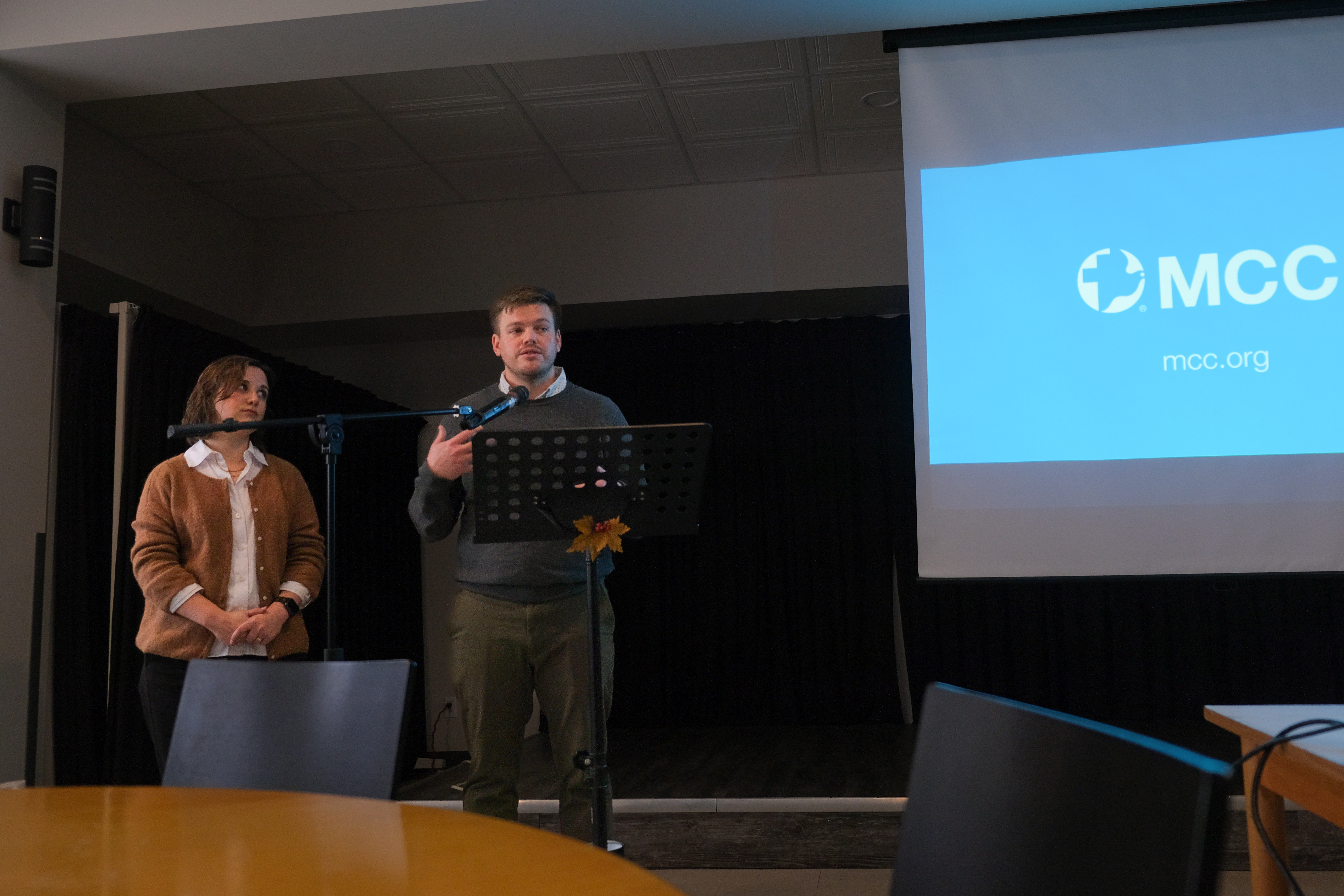
After more than a year of relentless assault on the Gaza Strip by the Israeli army, voices are rising from within Israeli society itself to demand a different approach in the relationship between Palestine and Israel.
Far from the bombs, Montreal’s churches that support MCC are also concerned about the disproportionate military response to the Hamas-led attacks launched on October 7, 2023. Taking advantage of a several-week tour in Washington D.C., New York, and Ottawa, MCC representatives in Jordan, Palestine and Israel, Seth Malone and Sarah Funkhouser, stopped in Montreal for one day on a chilly, sunny Monday in October 2024. The first of two meetings was conducted in French and took place at the Église de Sainte-Rose around refreshments. An MCC colleague brought dates.
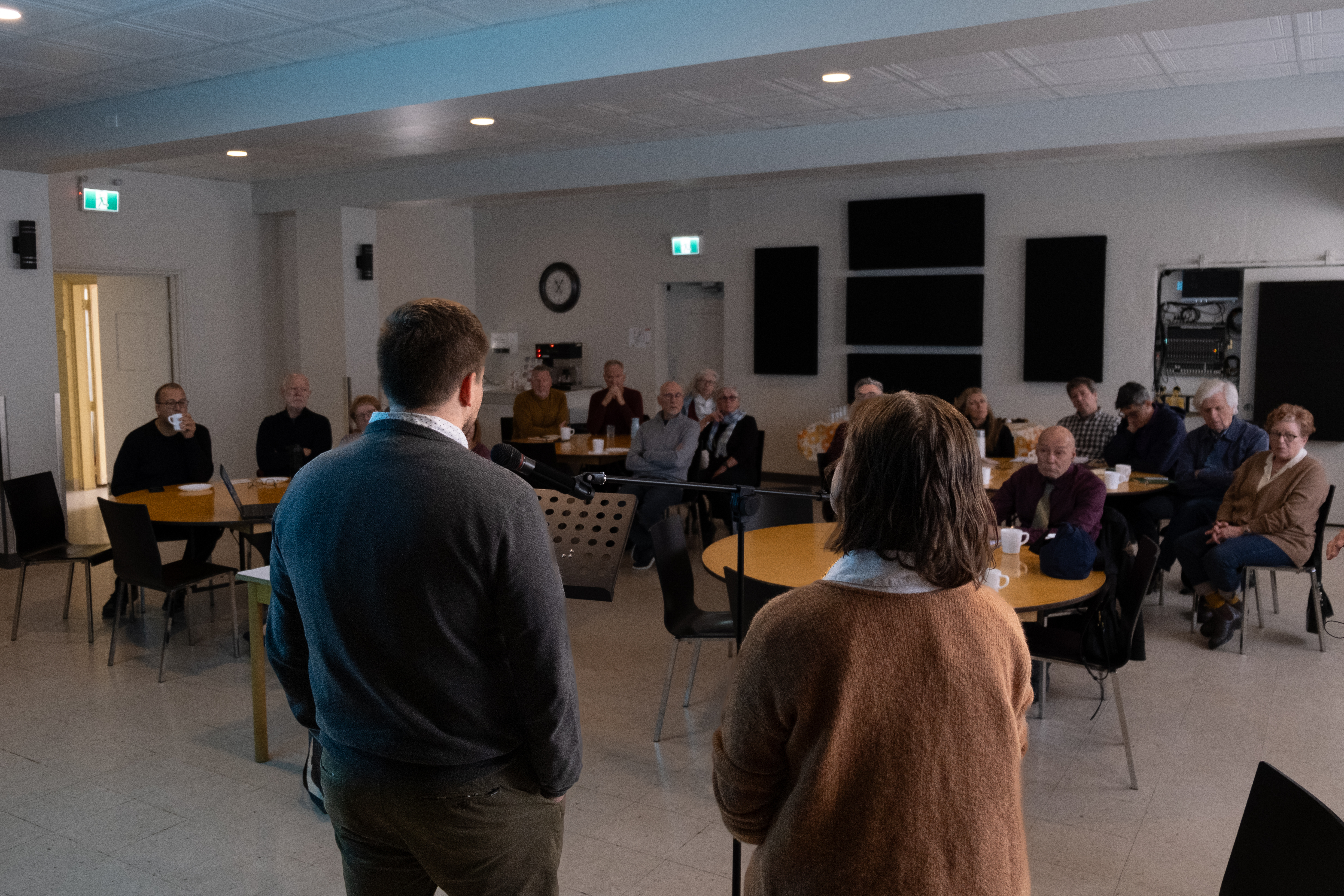
While meeting with key figures from the UN and the U.S. and Canadian governments, Seth and Sarah were willing to offer the Anabaptist churches of the Montreal area the perspective and lived experiences of their Israeli and Palestinian partners on the ground in the context of war.
Like true heroes braving explosions and military blockades, MCC partners living and working in Gaza provide food, bedding, and hygiene kits to the displaced, wounded, decimated, and grieving populations of Gaza. This strip of land, fenced and the size of the island of Montreal but even more densely populated, has seen over 70 percent of its buildings flattened by explosions.
No hospital in the entire strip is functional at present. Multiple independent sources, both journalistic and humanitarian, confirm and document this grim account.
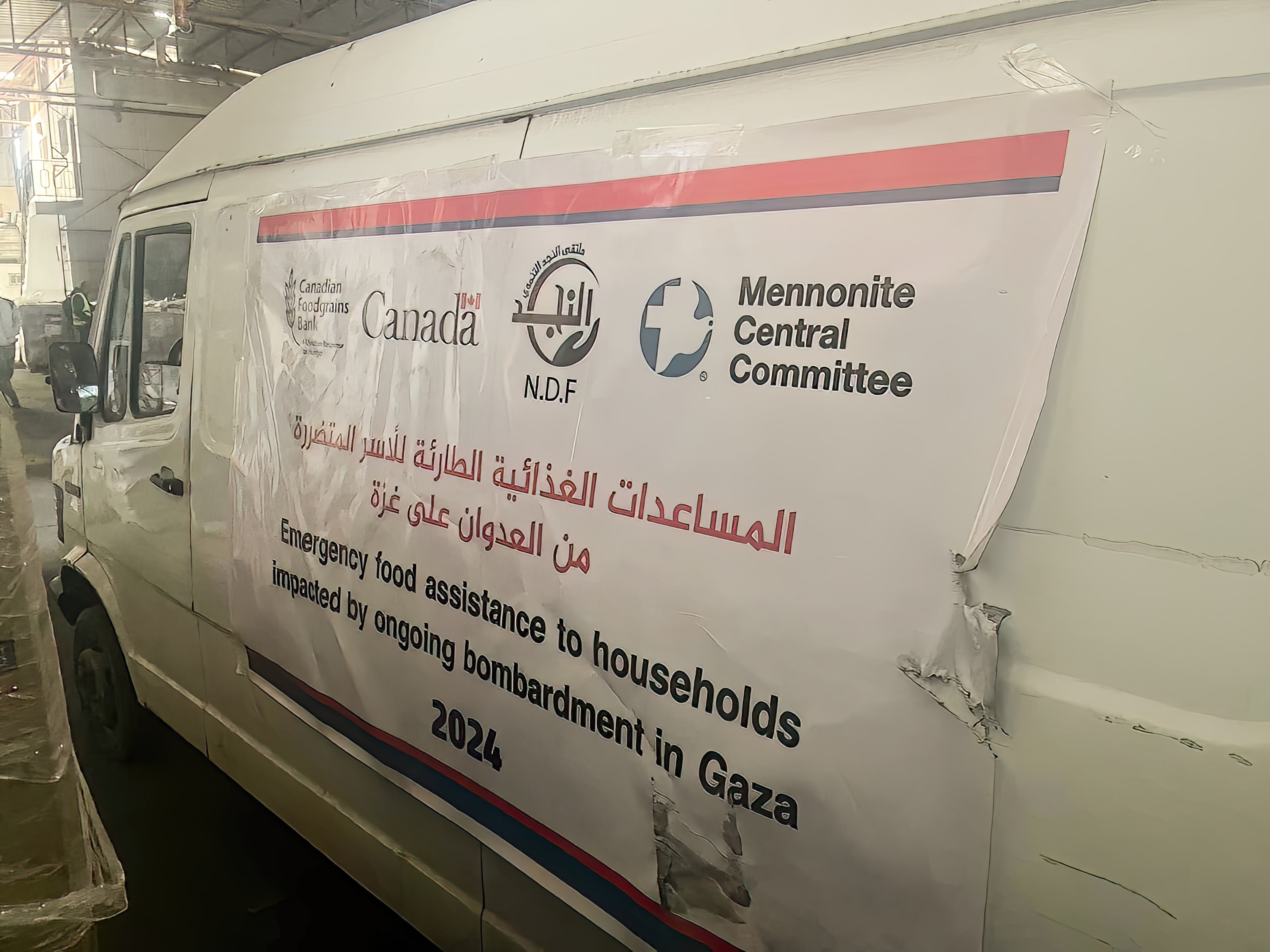
Despite all the media attention focused on the war in Gaza, many of the church leaders who participated in the meeting with Seth and Sarah could not imagine the extent and cruelty of such destruction.
As we were tasting the dates brought by my colleague, Seth shared a horrifying example of this cruelty: when humanitarian organizations distribute boxes of dates, an iconic fruit of the Middle East and an excellent source of energy, the Israeli checkpoints restrict dates that contain pits. One can only assume that it is to prevent Gazans from planting them and thereby growing their own sustenance. But perhaps the most astonishing part for the audience was understanding how much Israeli society is cut off from this reality, due to taboos and disinformation, and deprived of a perspective revealing an illegal occupation of Palestinian territory that has been ongoing since the Nakba (The Catastrophe) in 1948.
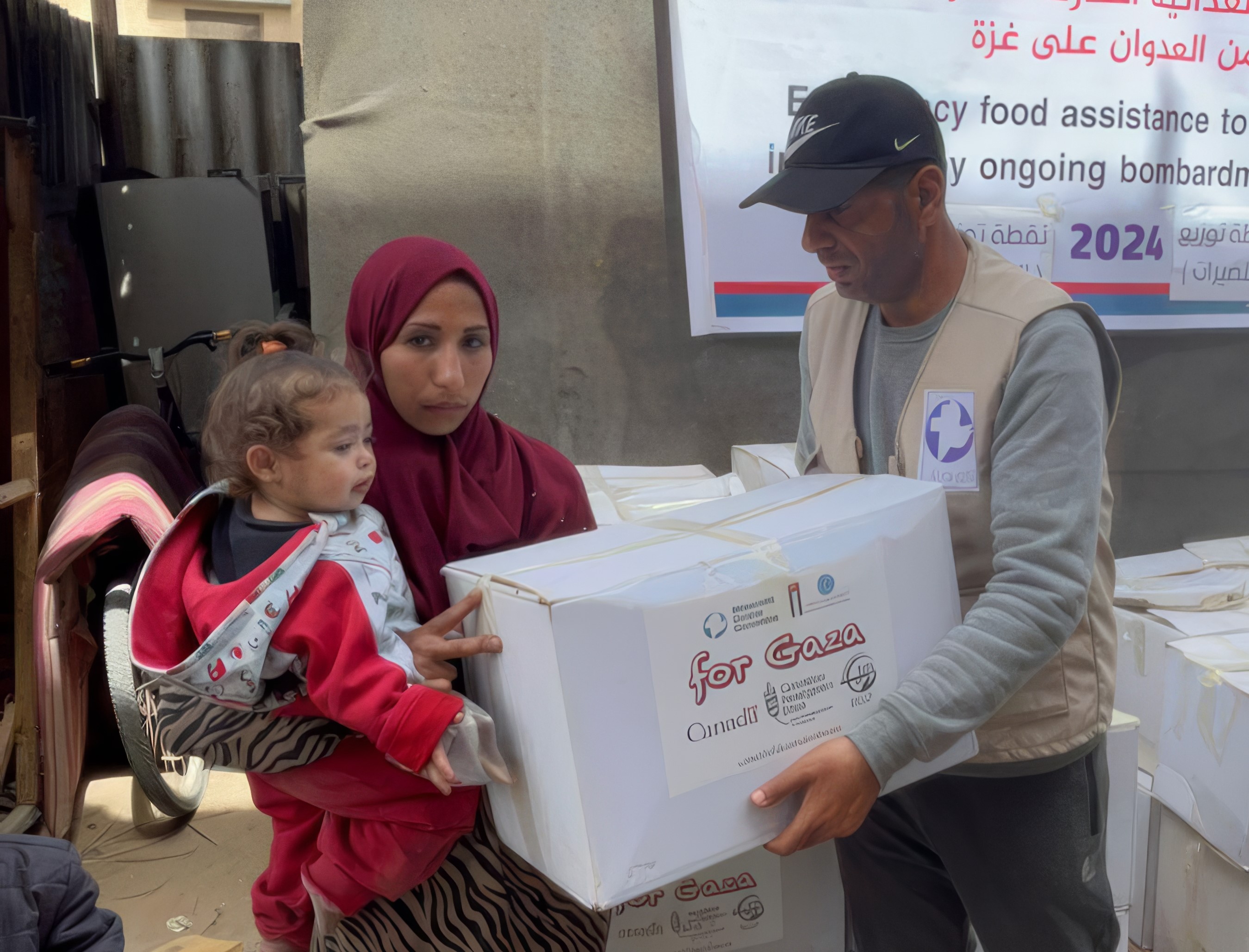
An Israeli MCC partner, Zochrot, is dedicated to educating Israeli Jews about the reality of the systematic and illegal dispossession of the Palestinian population. This is a delicate, dangerous, yet critically important task because it aims to create a new identity within Israeli society. The director of Zochrot, Rachel Beitarie, refers to a new imagination:
"Instead of placing our hopes in generals or tycoons, we can offer the solidarity among us and with our Palestinian sisters and brothers. Instead of power politics, [we can offer] the midwife’s wisdom: To manage to see the potential of what is not yet born, what does not yet exist."
Rachel Beitarie
Director of Zochrot
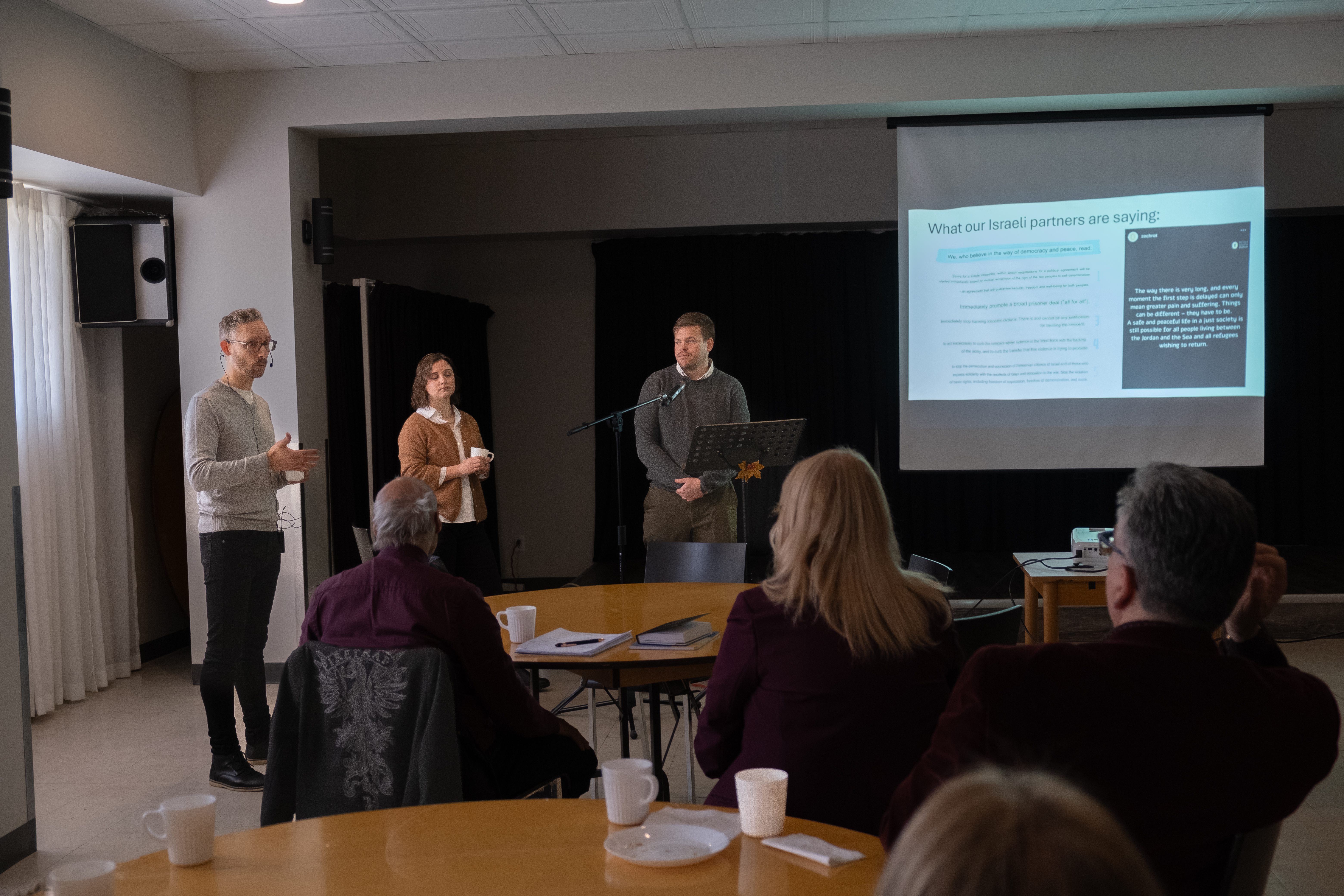
In front of the Montreal Anabaptist audience, Sarah Funkhouser returns to this notion of imagination and encourages us to pray that a vision of peace—one that is not yet a reality—might emerge both in Israel and in our churches. Why here as well as in Israel?
After 75 years of an ongoing conflict, we must look beyond the immediate circumstances (Palestinian resistance to dispossession) and understand how geopolitics prevents any resolution. Seth and Sarah remind us that the U.S., and until recently, Canada, have provided military support to Israel, which of course fuels the destruction of Gaza and, more generally, sustains the continuous occupation of Palestinian territory.
And the timid complaints of democratic countries when Israel violates international law (for example, when it attacks Iran or Lebanon without warning) discourages Israel from questioning its behavior and prevents it from facing the consequences of its actions. The call to develop an imagination for peace, therefore, implies demanding from our Western governments an approach of accountability and greater coherence between the principles they profess and the practice of international relations.
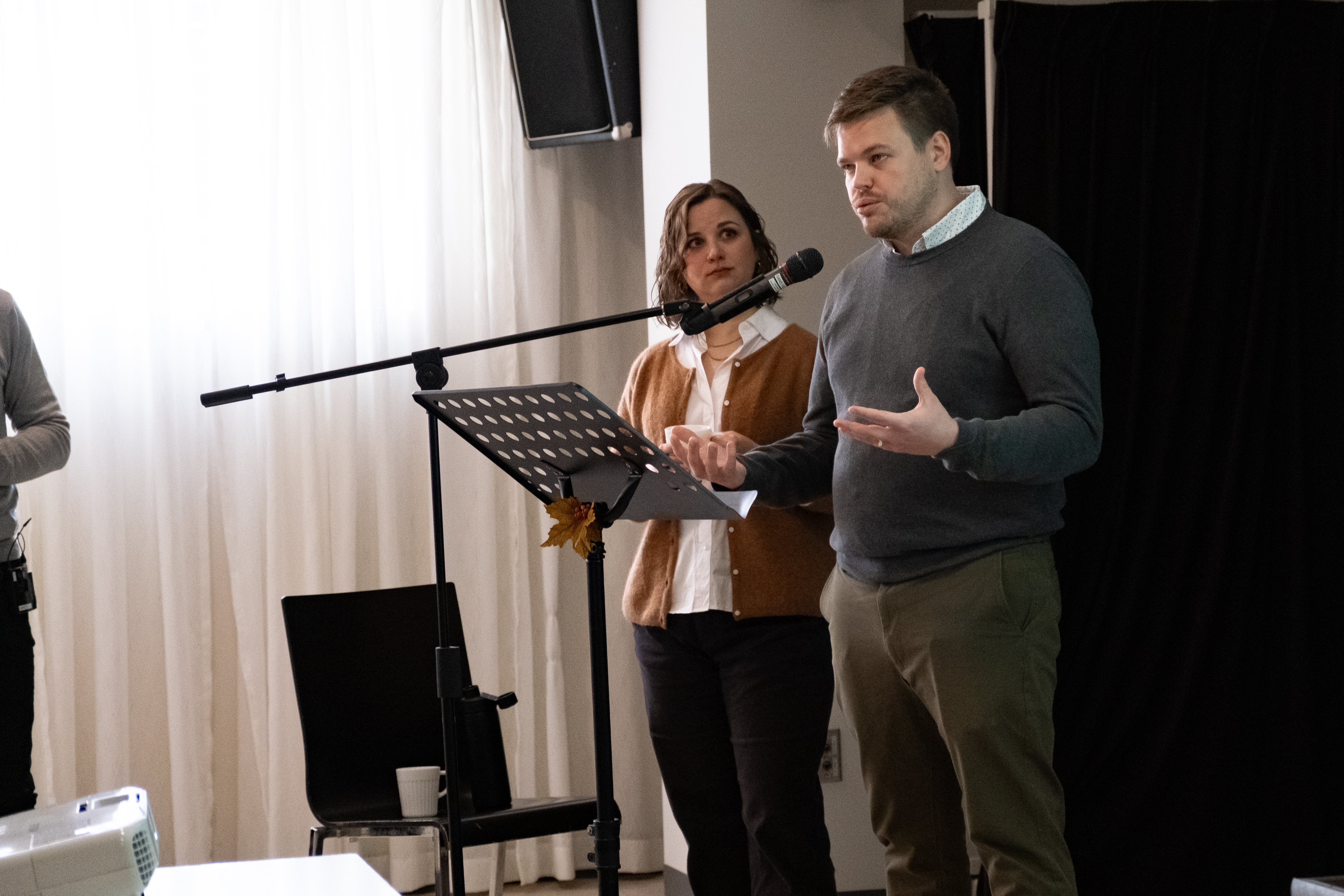
"Advocacy" is the process by which civil society, often driven by non-governmental organizations, leads a set of organized actions aimed at influencing and/or changing the behaviours, policies, and resource allocation of individuals or institutions that hold power, for the betterment of people affected by an issue (MCC Advocacy Toolkit, p.2). While sending humanitarian aid is necessary, we must not neglect the root causes of the impasse. Otherwise, we will merely repeat the same recipe that leads to the same disastrous results.
With the second election of Donald Trump and the promise of renewed and even more unwavering U.S. support for Israel, it will be even more difficult for Canada to represent a dissenting voice in favor of peace, compromise, and international rules. And such a thing will become practically unthinkable if the next Canadian election brings to power a party that mirrors the U.S. position.
MCC therefore invites those who maintain a vision for nonviolence, justice, and reconciliation in Palestine and Israel to express their voice both through advocacy, notably by signing this letter issued by MCC, and through the exercise of democratic voting. Finally, our prayers converge toward this corner of the world, so that dates may begin to abound once again in Palestinian soil, and peace may sprout where we had long ceased to imagine it.

